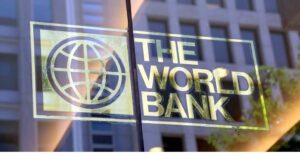
Credit to economy rises 34% to N63.3trn
Banks’ credit to the economy rose year-on-year (YoY) by 34 per cent to N63.3 trillion in the third quarter, 2022, from N46.9 trillion in the corresponding period of 2021.
Data from the Central Bank of Nigeria, CBN, Money and Credit Statistics shows that the total credit comprises government borrowing of N22.8 trillion and private sector borrowing of N40.5 trillion.
Report indicates that growth in government borrowings was outpacing private sector borrowing as the former rose 75 per cent while the later rose by 19 percent YoY, indicating the government borrowing is crowding out private sector.
Earlier this month, the Senate agreed to N8.4 trillion ($19 billion) of new loans for 2023 to help fund an estimated Federal Government budget shortfall of N10.5 trillion.
According to the World Bank, the new loans would add to Nigeria’s rising debt-service costs, which already exceeded revenue in the first four months of this year and could reach 102 per cent of government income by end of 2022.
The Finance Minister Zainab Ahmed said that the proposed 2023 budget deficit may rise to N12.4 trillion, if the government continues to subsidize petrol beyond June 2023 as guided by the current government. This would create the need for the government to borrow even more with revenues expected to total N8.46 trillion, less than half of the proposed 2023 expenditure of N19.76 trillion.
The CBN data also shows that currency-in-circulation rose YoY by 12.6 per cent to N3.2 trillion in September 2022 from N2.84 trillion in September 2021.



